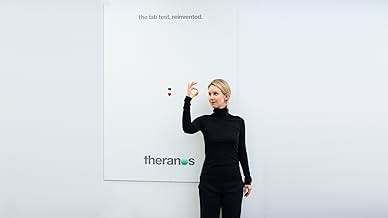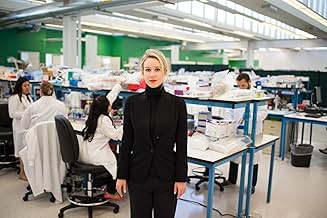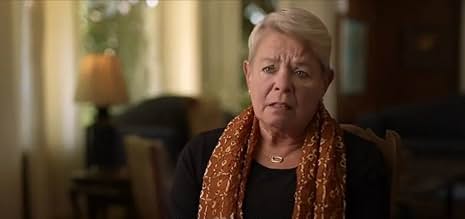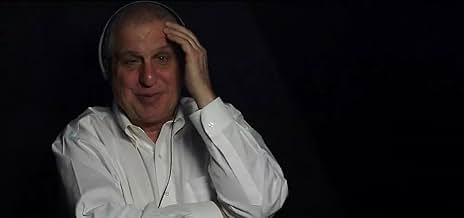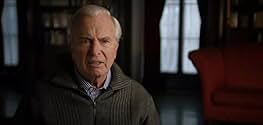The story of Theranos, a multi-billion dollar tech company, its founder Elizabeth Holmes, the youngest self-made female billionaire, and the massive fraud that collapsed the company.The story of Theranos, a multi-billion dollar tech company, its founder Elizabeth Holmes, the youngest self-made female billionaire, and the massive fraud that collapsed the company.The story of Theranos, a multi-billion dollar tech company, its founder Elizabeth Holmes, the youngest self-made female billionaire, and the massive fraud that collapsed the company.
- Nominated for 1 Primetime Emmy
- 2 wins & 3 nominations total
Elizabeth Holmes
- Self - CEO and Founder of Theranos
- (archive footage)
Dave Philippides
- Self
- (as Dave Philippide)
Ramesh Balwani
- Self - President and Chief Operating Officer
- (as Sunny Balwani)
- Director
- Writer
- All cast & crew
- Production, box office & more at IMDbPro
Featured reviews
Currently airing on HBO, this film by master documentarian Alex Gibney (The Armstrong Lie/Taxi to the Dark Side) explores the pervasive 'fake it till you make it' ethos which much of the dotcom enterprises have undertaken in order to gain funding for their big idea even though sometimes, as in this doc's case, there is no product delivered at the end of the day. Elizabeth Holmes wanted to create a revolutionary device which by using a person's blood (from a finger prick) could examine & determine any maladies or characteristics for medical use at a fraction of what the big labs charge today. Not having any successfully manufactured tangible device to use, the results of the initial tests performed on patients were skewed & problematic even though Walgreen's had bought into their new tech setting up wellness centers in Arizona before rolling them out nationwide. Aligning herself w/big money & hopeful investors, Holmes, along w/her partner & significant other, continued to ratchet up the success of their non-existent product to the public much to the chagrin of employees who knew the truth all along & eventually whistleblowed the entire scheme to the press. A worthy case of believing in the product rather than the producer is made when we see avarice & arrogance go hand in hand to a potentially devastating result.
Like others, I followed the Theranos/Elizabeth Holmes story and in addition read the excellent book that investigative journalist John Carreyrou authored and published last year (Bad Blood).
It felt that the first part of this documentary was a hagiography rather than an incisive investigative documentary - the focus on the "female Steve Jobs" perspective dominated and she certainly seemed to have the same "reality distortion field" powers he had. However, having read the book my perspective was that she, and her boyfriend/COO Sunny Balwani were bullies (via lawyer David Boies, security guards and others) to their staff , associates and others and who benefited by manipulating otherwise smart, powerful people and taking advantage of their wishful thinking. Eventually the documentary got to the reality but it felt like a long time and frankly I found some of the interviews (eg with the respected behavioral economist Dan Ariely) to be somewhat ethereal and did not add value to the story.
I have been around start-ups and understand the notion of "faking it a bit" to get to the final "vision". However, to compare her to an Edison, a Jobs or a Musk was inappropriate. in terms of her ability to manipulate, tell brazen lies and intimidate I feel a much more appropriate comparison would have been Bernie Madoff.
It felt that the first part of this documentary was a hagiography rather than an incisive investigative documentary - the focus on the "female Steve Jobs" perspective dominated and she certainly seemed to have the same "reality distortion field" powers he had. However, having read the book my perspective was that she, and her boyfriend/COO Sunny Balwani were bullies (via lawyer David Boies, security guards and others) to their staff , associates and others and who benefited by manipulating otherwise smart, powerful people and taking advantage of their wishful thinking. Eventually the documentary got to the reality but it felt like a long time and frankly I found some of the interviews (eg with the respected behavioral economist Dan Ariely) to be somewhat ethereal and did not add value to the story.
I have been around start-ups and understand the notion of "faking it a bit" to get to the final "vision". However, to compare her to an Edison, a Jobs or a Musk was inappropriate. in terms of her ability to manipulate, tell brazen lies and intimidate I feel a much more appropriate comparison would have been Bernie Madoff.
Grateful to see this story told, but the documentary is unnecessarily long, repetitive, and overstylized to make up for it.
Having read the book, Bad Blood, written by the journalist who broke the Wall Street Journal story, and having been shocked and absolutely disgusted by Holmes and Sunny, I found this to be oddly lighthearted and unfocused. It skipped so much of what made the story truly horrifying and would have benefited from being extended in a format such as Wild Wild Country. Maybe not quite to that length, but a deeper look would have been so fascinating, especially with the addition of the film. I would still encourage you to view it, though, if you are not well read on the case. Not horrible, but I was disappointed.
I was struck by some of the similarities between this and an ostensibly very different documentary I recently watched, about the disastrous Fyre (music) Festival. In both cases, a young person managed to get older and supposedly wiser people to give them ridiculous amounts of money based purely on their chutzpah, while providing nothing in the way of oversight or verification in return. In both cases, everyone involved should have known better from the beginning.
I don't know the history of the production of this documentary, but there's a lot of very flattering footage of Holmes, so my guess is that at the heart of this, someone was working on a hagiography about her and then re-tasked the footage when things went South. This means you'll get your fill of her strange unblinking stare and weirdly affected voice.
I found very amusing that hordes of older men were quick to fawn over her (sometimes to an embarrassing degree) and support her financially, while the only person who didn't buy it was her female professor at Stanford. Is it possible these men maybe weren't thinking with their brains? I wonder (actually I don't).
Everyone compared her to Steve Jobs, and she consciously cultivated the image, but the thing everyone forgets is the Apple didn't involve any new or even challenging technology. No one doubted you could build a home computer. Jobs' genius was realizing people would *buy* one. In contrast, Holmes was claiming to have developed a revolutionary new technology that had eluded some of the biggest medical tech companies in the world, and everyone simply took her word for it with no evidence whatsoever. Imagine if instead of a computer, Jobs had claimed to have built a spaceship in his garage, and then rounded up investors without showing it to anyone. That's more like what Theranos was like.
The movie does a very good job of laying out the facts and the time line, but a central question remains unanswered; namely, when exactly did things go from "optimism" to "fraud"? Was it a scam from the beginning, or did she really think she could pull it off? Maybe that can't be answered by anyone but Holmes, and she's not saying. Even if you're very generous with your impression of her, the "adults" should have more realistic and looked out for things.
In the end, it's a cautionary tale from which I doubt anyone will learn anything.
I don't know the history of the production of this documentary, but there's a lot of very flattering footage of Holmes, so my guess is that at the heart of this, someone was working on a hagiography about her and then re-tasked the footage when things went South. This means you'll get your fill of her strange unblinking stare and weirdly affected voice.
I found very amusing that hordes of older men were quick to fawn over her (sometimes to an embarrassing degree) and support her financially, while the only person who didn't buy it was her female professor at Stanford. Is it possible these men maybe weren't thinking with their brains? I wonder (actually I don't).
Everyone compared her to Steve Jobs, and she consciously cultivated the image, but the thing everyone forgets is the Apple didn't involve any new or even challenging technology. No one doubted you could build a home computer. Jobs' genius was realizing people would *buy* one. In contrast, Holmes was claiming to have developed a revolutionary new technology that had eluded some of the biggest medical tech companies in the world, and everyone simply took her word for it with no evidence whatsoever. Imagine if instead of a computer, Jobs had claimed to have built a spaceship in his garage, and then rounded up investors without showing it to anyone. That's more like what Theranos was like.
The movie does a very good job of laying out the facts and the time line, but a central question remains unanswered; namely, when exactly did things go from "optimism" to "fraud"? Was it a scam from the beginning, or did she really think she could pull it off? Maybe that can't be answered by anyone but Holmes, and she's not saying. Even if you're very generous with your impression of her, the "adults" should have more realistic and looked out for things.
In the end, it's a cautionary tale from which I doubt anyone will learn anything.
Did you know
- TriviaThe film's producer met with Elizabeth Holmes early in development, before criminal charges were filed, to determine whether she could be interviewed for the film. Ultimately the director decided he wanted to portray how Holmes carefully crafted Theranos and her own image to be seen by the public, up until the story unraveled. Accordingly, aside from brief footage from her deposition, all footage of Holmes seen in the film is from archival material from before she was charged, most of it her own commissioned promotional video for Theranos. Alex Gibney remarked "She made the documentary she wanted me to invest in and I used it to a different purpose."
- ConnectionsReferenced in Film Junk Podcast: Episode 702: Dragged Across Concrete (2019)
- SoundtracksU Can't Touch This
Written by M.C. Hammer (as Stanley Kirk Burrell), Rick James & Alonzo Miller
Performed by M.C. Hammer
Courtesy of Capitol Records
Under license from Universal Music Enterprises
- How long is The Inventor: Out for Blood in Silicon Valley?Powered by Alexa
Details
- Release date
- Country of origin
- Language
- Also known as
- Untitled Alex Gibney/HBO Project
- Production companies
- See more company credits at IMDbPro
- Runtime1 hour 59 minutes
- Color
- Sound mix
- Aspect ratio
- 16:9 HD
Contribute to this page
Suggest an edit or add missing content

Top Gap
What is the Japanese language plot outline for The Inventor: Out for Blood in Silicon Valley (2019)?
Answer


